If you’ve been blessed with an abundance of zucchini from your garden, then you’ll want to read this blog post! It will teach you how to store zucchini so that it lasts as long as possible. Zucchini is a delicious vegetable that can be used in a variety of recipes. However, if it’s not stored properly, it will quickly go bad. Follow these tips and you’ll be able to enjoy your zucchini for weeks!
Zucchini and their health benefits
Zucchini is a type of summer squash, usually dark or light green. It belongs to the Cucurbitaceae family and is related to cucumbers, pumpkins, and other types of squash. Zucchini has been cultivated since ancient times and has become popular worldwide over the past few decades.
In addition to being nutrient-dense, zucchini is low in calories, fat, and carbohydrates. This makes it a great addition to any weight loss plan as it provides plenty of nutrients without adding too many extra calories. Zucchini can also help keep you full for longer periods due to its high fiber content.
Finally, zucchini can be used in a variety of recipes and dishes. It can be eaten raw in salads or sandwiches, grilled, baked, or added to soups and stews. You can even use them to make delicious sweet treats like zucchini muffins or bread! The possibilities are endless when it comes to zucchini so get creative and enjoy all the health benefits this versatile vegetable has to offer [1]!
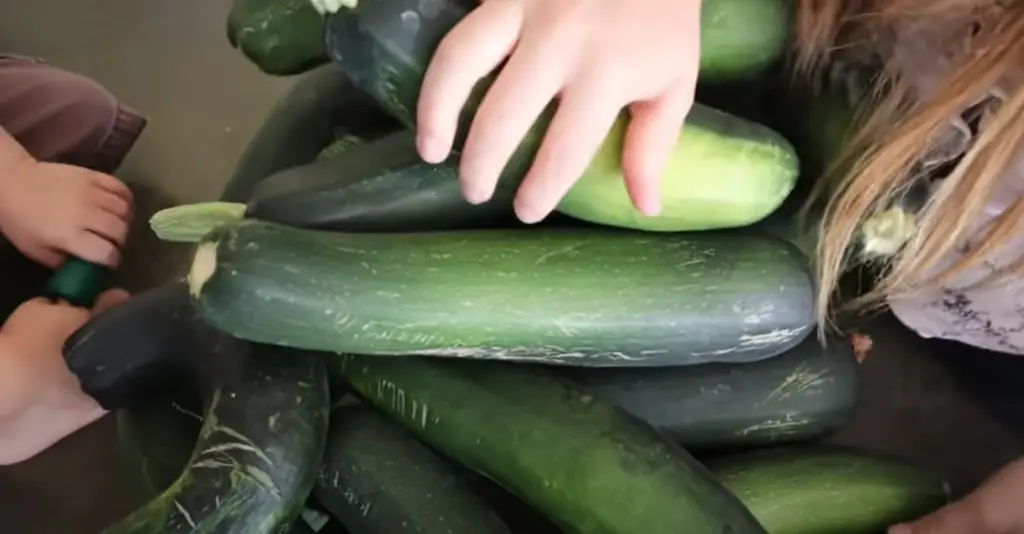
How to Store Zucchini From the Garden?
Don’t Wash Zucchini (Until Ready to Use It)
When harvesting zucchini, resist the urge to wash it right away. This can cause damage to the delicate skin of zucchini and increase its susceptibility to spoilage. Instead, brush off any dirt with a soft cloth or paper towel.
Store Unwashed Zucchini in the Refrigerator
Once you’ve harvested it, store unwashed zucchini in a plastic bag in the vegetable drawer of your refrigerator. Zucchinis stored this way should stay fresh for up to two weeks. If you want them to last even longer, wrap each one individually in plastic wrap before putting them into the bag.
Do Let Zucchini Breathe
Don’t store zucchini in a sealed container, as this encourages moisture and can cause rot. If you don’t have a vegetable drawer, keep them in an open plastic bag with a few holes for ventilation.
Don’t Be Afraid to Freeze Zucchini
If you’ve got an abundance of zucchini and won’t be able to use it up before it goes bad, don’t forget that you can freeze it. To store frozen zucchini, wash and pat dry before cutting it into cubes or slices. Blanch for two minutes in boiling water before freezing. Place the blanched pieces on a parchment-lined baking sheet and freeze for about an hour until solid. Then transfer the chunks to freezer bags and store them for up to 12 months in the freezer.
Keep Zucchini Away From Other Fruits & Vegetables
Make sure to keep your zucchini away from other fruits and vegetables as they produce ethylene gas which encourages ripening. This can lead to your zucchini spoiling faster than it should.
Don’t Freeze Zucchini Noodles
If you’re planning on making zucchini noodles, don’t freeze them beforehand as they will become soggy when thawed. Instead, make the noodles fresh and store them in an airtight container in the refrigerator for up to a week.
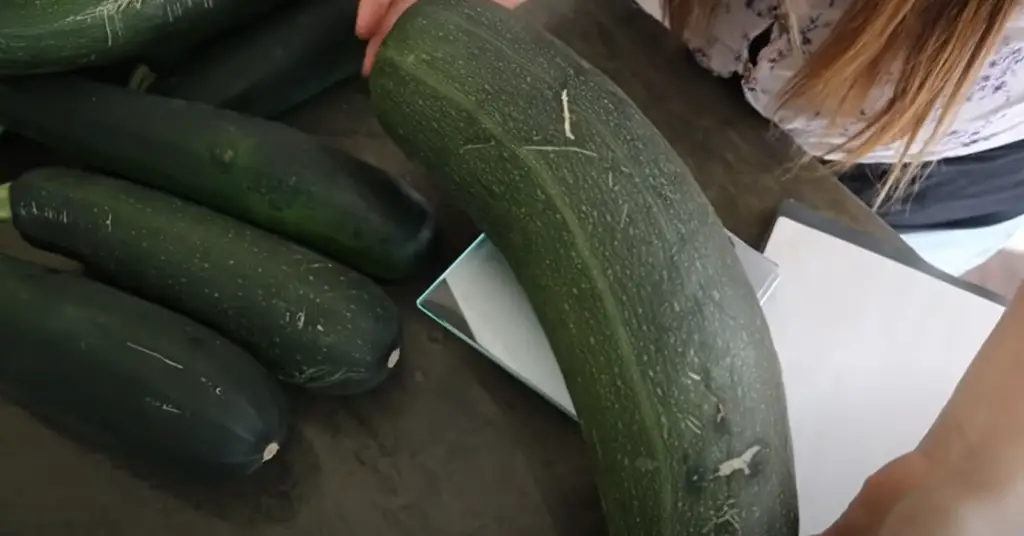
Use within Three Days of Harvesting
Freshly harvested zucchinis are best eaten within three days of picking. The longer it sits out at room temperature, the more likely it is to spoil quickly due to its high moisture content. If you don’t plan on using your zucchini right away, store it in the refrigerator.
Don’t Let Any Zucchini Go to Waste
If your zucchini does start to spoil before you can eat it, don’t despair. You can often salvage some of the flesh by cutting away any mushy parts and cooking the remainder as soon as possible. Zucchini is also great for making soups, sauces, and baked goods like muffins or quick bread. With a little bit of creativity, there’s no need to let any delicious zucchini go to waste [2]!
How to Blanch Zucchini Before Freezing?
Blanching zucchini before freezing is an easy and effective way to preserve the crunchy texture and flavor of this vegetable. Blanching involves briefly cooking the zucchini in boiling water, followed by a rapid cool-down in cold or ice water. This process stops enzymes from destroying the quality of the zucchini during storage and also helps remove some of its bitterness.
To blanch zucchini before freezing:
- Fill a large pot with enough water to cover your zucchini slices. Bring to a boil over high heat.
- Add the zucchini slices to the boiling water for 3 minutes, stirring occasionally so that all slices are evenly cooked.
- Remove from heat and immediately transfer the zucchini slices to a large bowl of ice water. Allow them to cool for several minutes before transferring them to a colander or strainer.
- Place the cooled, strained zucchini on paper towels or kitchen towels and pat dry with additional paper towels.
- Place the blanched zucchini in airtight freezer bags or containers and store it in your freezer for up to 6 months.
This quick blanching process will help preserve the flavor and quality of your zucchini during storage, so you can enjoy it all season long!
How to Freeze Zucchini?
Step 1: Rinse and Slice Zucchini
Rinse the zucchini under cold running water and pat dry with a clean kitchen towel. Slice it into thin rounds, half-moons, or spears depending on your preference.
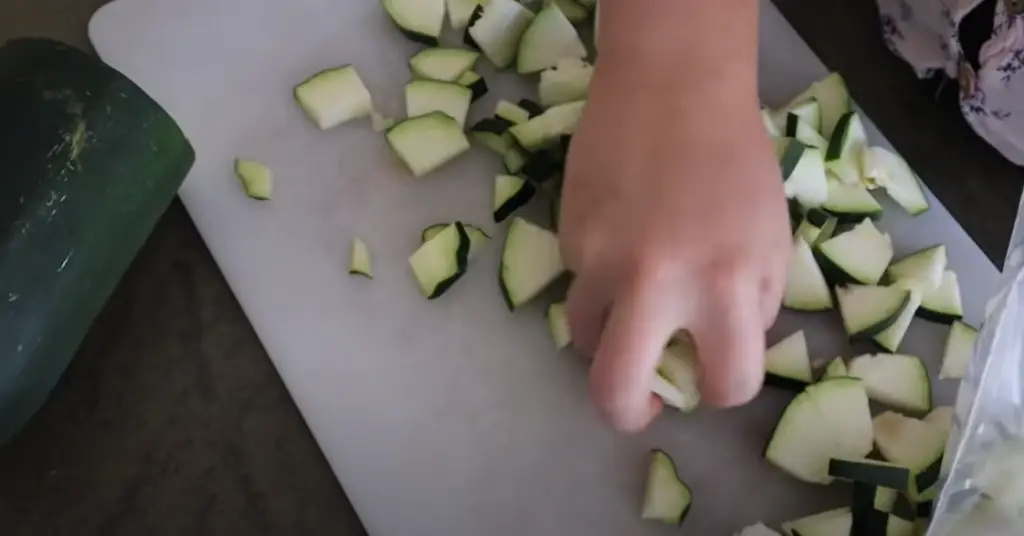
Step 2: Blanching
In a large pot of boiling salted water, blanch the zucchini for 3 minutes. Remove from the heat and immediately transfer to a bowl of ice water to stop cooking. Once cool, remove from the ice bath and drain in a colander.
Step 3: Packaging
Lay out several layers of paper towels on your countertop and place the cooled zucchini slices in single layers onto the towels – this is important as any moisture left on them can cause freezer burn during storage. Pat the slices dry with additional paper towels to ensure proper moisture removal. Transfer the zucchini slices to airtight containers or freezer-safe bags, leaving a bit of space for expansion during freezing. Label each container with its contents and date, if desired.
Step 4: Freezing
Place the containers into the freezer in flat stacks so that they freeze evenly and quickly – for best results, use within 8 months. Once frozen solid, you can stack them, however, you’d like! To thaw frozen zucchini, simply leave it on your countertop at room temperature until softened (which usually takes 15 minutes or less).
Step 5: Save for Later
Now your zucchini is ready to be used how you please! It can be added to soups and stews, used as a side dish, or simply tossed into salads [3].
How to Thaw Zucchini After Freezing?
Once you’ve decided that your zucchini is ready to be thawed, there are a few ways to accomplish this. The most common and simple way to thaw frozen zucchini is by transferring the already-frozen slices onto a plate or dish and placing it in the refrigerator overnight. This ensures that the zucchini will defrost slowly and evenly, with minimal water loss.
Once your frozen zucchini has been thawed, it is ready to be used in any desired recipes such as soups, casseroles, stir-fry dishes, salads, and more! Be sure to drain off any excess water from the defrosted slices before adding them to your dish. Additionally, if you plan on baking with the zucchini (i.e., bread, muffins, or cakes), it is best to press out as much liquid as possible with a paper towel before adding them to your baking mixture.
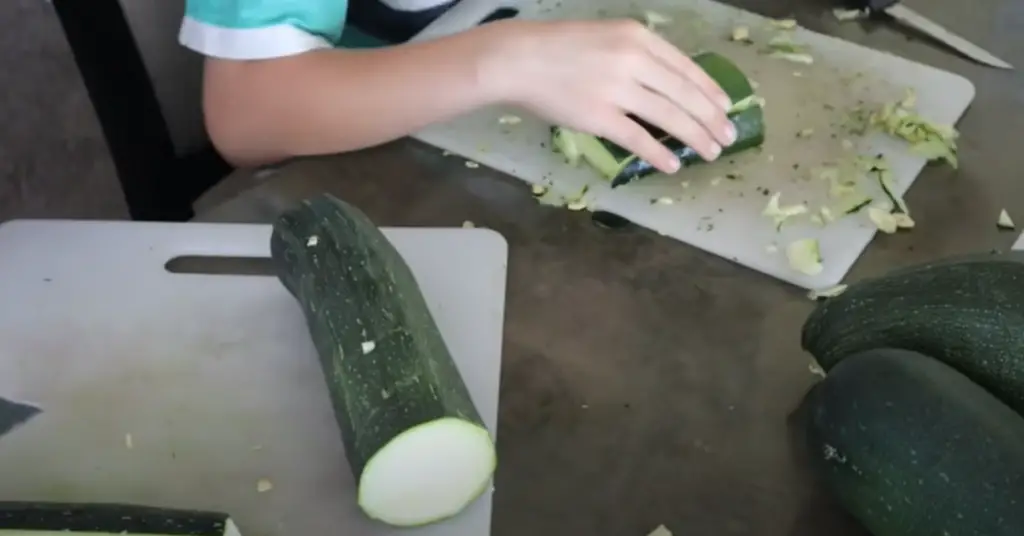
Most popular Zucchini Recipes
- Zucchini Fritters: A delicious, savory alternative to pancakes and a great way to use up leftover zucchini. These fritters can be served as an appetizer, side dish, or even a main meal with a side salad.
- Baked Zucchini Chips: An easy and tasty snack that won’t break the calorie bank! Make sure to cut the zucchini thin enough for them to crisp up in the oven.
- Zucchini Lasagna: This lighter version of lasagna uses thinly sliced zucchini instead of pasta layers for a low-carb dinner option. Adding ricotta cheese and plenty of herbs makes this dish flavorful and satisfying.
- Zucchini Bread: A classic favorite, zucchini bread is a delicious way to use up your surplus of summer squash. It’s moist, lightly sweetened, and full of flavor.
- Grilled Zucchini: Grill slices of zucchini for the perfect side dish or light entree! Add a few herbs and spices to give it an extra kick of flavor.
- Stuffed Zucchini Boats: Cut zucchini in half and stuff them with your favorite ingredients for an easy dinner that looks impressive. Use ground meat, rice, cheese, and vegetables to make a hearty filling everyone will love!
- Zoodles & Pesto: Spiralized zucchini makes a great substitution for pasta when you’re trying to cut back on carbs. Serve it with pesto and some grilled chicken or shrimp for an easy weeknight meal.
- Zucchini Fries: Cut zucchini into “fries” and bake them in the oven for a delicious, healthier alternative to regular French fries. Serve them with your favorite dipping sauces!
- Zucchini Noodles & Creamy Avocado Sauce: If you don’t have time to make homemade pesto or marinara sauce, try this creamy avocado sauce instead! It’s perfect for topping zucchini noodles for a nutritious meal that’s packed with flavor.
- Zucchini Pizza: Swap out the traditional pizza crust for thinly sliced zucchini and enjoy a lighter, healthier version of this classic dish. Top it with your favorite toppings and bake in the oven until golden brown and bubbly.
- Zucchini Muffins: A great way to use up any remaining zucchini, these muffins are moist, fluffy, and full of flavor! They make a delicious breakfast or snack.
- Chocolate Zucchini Cake: Believe it or not, chocolate zucchini cake is actually pretty tasty! It’s also much healthier than regular cakes since it incorporates fresh zucchini into the batter. Serve with some whipped cream for an extra indulgent treat [4]!
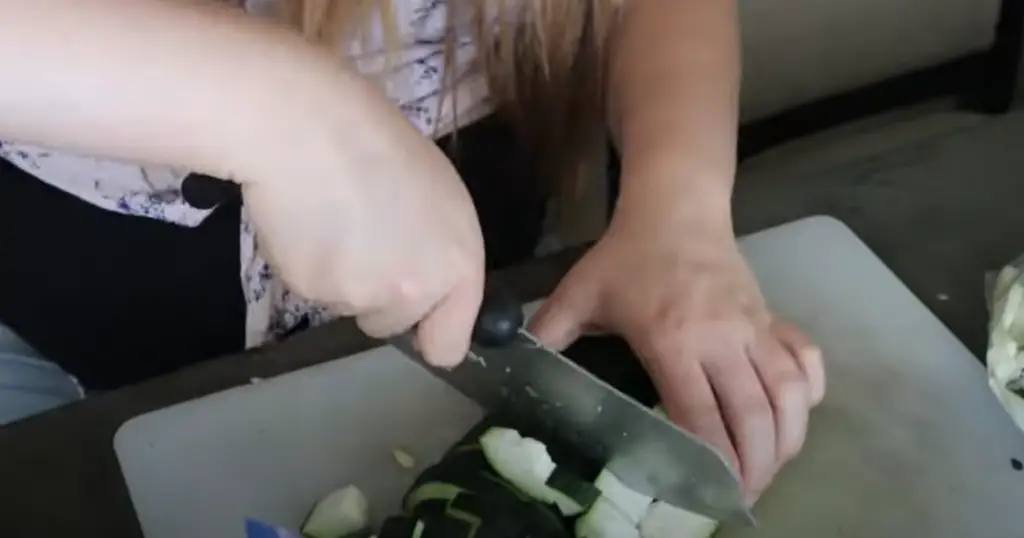
FAQ
Should you refrigerate zucchini from the garden?
No, zucchini from the garden does not need to be refrigerated. You can store it in a cool, dry place such as a pantry or cupboard for up to a week. After that, you should either use it or freeze it. If you do choose to refrigerate it, it will keep for up to two weeks. It’s important to remove any blemished parts and wash the skin before eating it.
Is zucchini a fruit or vegetable?
Zucchini is technically classified as a fruit because it is the part of the plant that contains seeds; however, it’s generally eaten as a vegetable due to its savory flavor and texture. The most common way to prepare zucchini is by slicing it and cooking it like a vegetable, but it can also be eaten raw or added to baked goods.
What are the health benefits of eating zucchini?
Zucchini is packed with vitamins, minerals, and antioxidants that can help boost your overall health. It’s an excellent source of vitamin C which helps support your immune system and protect against infection. Zucchini is also high in dietary fiber which keeps you feeling full for longer and helps maintain healthy blood sugar levels. Additionally, the antioxidants present in zucchini help reduce inflammation and may even provide some protection against certain types of cancer.
Does zucchini last longer in the fridge or on the counter?
Zucchini will last longer if stored in the refrigerator. If stored on the counter, it will only keep for about a week, but in the refrigerator, it can last up to two weeks. To ensure maximum freshness, wrap the zucchini in plastic or store it in an airtight container before refrigerating. For best results, use within one week of purchase.
Can you freeze zucchini?
Yes, you can freeze zucchini. It’s important to make sure that the zucchini is blanched first as this helps preserve its flavor and texture. After blanching, allow the zucchini to cool completely then cut it into cubes or slices and place it in freezer-safe bags or containers. Zucchini can be frozen for up to one year. When ready to use, allow the zucchini to thaw in the refrigerator overnight before using.
What are some creative ways of cooking zucchini?
There are many creative and delicious ways to prepare zucchini. It can be steamed, grilled, roasted, or even made into a delectable dip or spread. You can also make zucchini fritters, noodles, casseroles, soups, stir-fries, pizza crusts, lasagna rolls, and much more! Get creative with your ingredients and explore all the different possibilities that zucchini has to offer!
Can you eat the skin on zucchini?
Yes, you can eat the skin on zucchini. It is edible and contains many of the same nutrients found in the flesh. However, it’s important to wash off any dirt or debris before eating as this can contain bacteria or other contaminants that could make you sick. If you do choose to remove the skin, use a vegetable peeler for the best results.
Do zucchinis have seeds?
Yes, zucchinis have small edible seeds located in their center. These are often removed when cooking but they are safe to consume if left intact. The seeds can be scraped out with a spoon or chopped up and cooked along with the rest of the vegetables. It’s important to note that zucchini seeds may be slightly bitter, so it’s best to remove them for more mild dishes. Zucchini is a popular vegetable with many potential health benefits. It can be enjoyed raw, cooked, frozen, or canned and offers plenty of ways to get creative in the kitchen. Be sure to wash the skin before consuming it and store it properly in the refrigerator or freezer for maximum freshness. And don’t forget those tasty little seeds!
How do you preserve garden zucchini?
Preserving garden zucchini is a great way to enjoy the fruits of your labor for months to come. The most popular methods include freezing, pickling, and canning. To freeze zucchini, wash it thoroughly and cut it into thin slices or cubes before blanching it in boiling water. Place the blanched zucchini in sealed containers or freezer-safe bags and store them in the freezer for up to twelve months. If you choose to pickle your zucchini, make sure to use a vinegar-based recipe that contains salt and sugar as this helps preserve flavor and texture. Once prepared, store them in airtight jars or other non-reactive containers and keep them refrigerated for up to six weeks.
What to do with zucchini after picking?
Once you’ve picked zucchini from your garden, there are many ways to enjoy them. You can eat them raw or cooked, freeze them for future use, pickle them, and more! When storing fresh zucchini, wrap it in plastic or store it in an airtight container before putting it in the refrigerator. This will help keep it fresh for up to two weeks. If you plan on freezing the zucchini for later use, make sure to blanch it first so that its flavor and texture are preserved. And if you’re feeling creative, try out some new recipes with your freshly-picked zucchini!
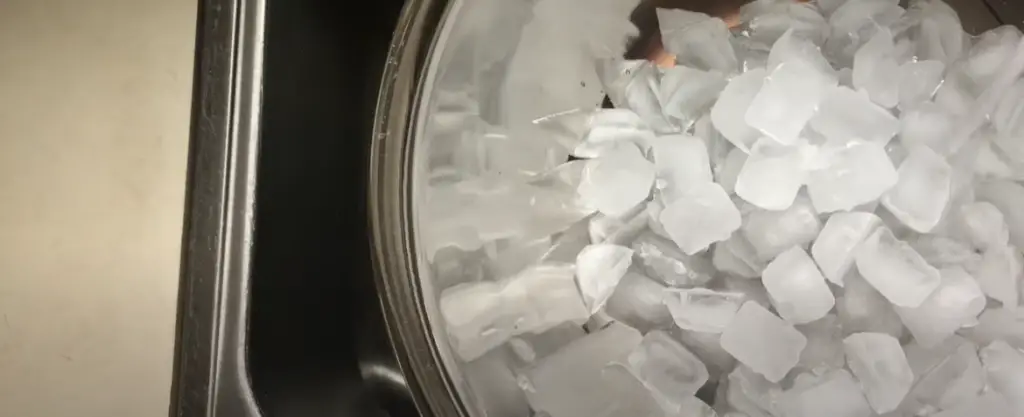
How do you preserve zucchini for later use?
The best way to preserve zucchini for later use is by freezing it. To freeze zucchini, wash it thoroughly and cut it into thin slices or cubes before blanching it in boiling water. Place the blanched zucchini in sealed containers or freezer-safe bags and store them in the freezer for up to twelve months. Another option is to pickle the zucchini using a vinegar-based recipe that contains salt and sugar as this helps preserve flavor and texture. Once prepared, store them in airtight jars or other nonreactive containers and keep them refrigerated for up to six weeks. Canning is also an option but requires more time, ingredients, and preparation than the other methods mentioned above.
What can I do with too much zucchini?
If you find yourself with too much zucchini on your hands, don’t panic! There are plenty of ways to put it to good use. The most popular methods include freezing, pickling, and canning. To freeze zucchini, wash it thoroughly and cut it into thin slices or cubes before blanching it in boiling water. Place the blanched zucchini in sealed containers or freezer-safe bags and store them in the freezer for up to twelve months. If you choose to pickle your zucchini, make sure to use a vinegar-based recipe that contains salt and sugar as this help preserve flavor and texture.
Can I eat zucchini raw?
Yes, you can eat zucchini raw! It is a popular vegetable with many potential health benefits. Be sure to wash the skin before consuming it and store it properly in the refrigerator or freezer for maximum freshness. When eating it raw, try adding slices of zucchini to salads, making healthy wraps with thinly sliced zucchini ribbons, or blending them into smoothies. It’s important to note that eating raw zucchini can potentially cause gastrointestinal upset so if you are concerned, it’s best to cook the zucchini before consuming it.
Useful Video: How to FREEZE ZUCCHINI and SQUASH | NO Blanching | 2020
Conclusion
Storing zucchini from the garden each year can be an enjoyable and rewarding experience. With the right tools and knowledge, zucchini can be preserved in a variety of ways including freezing, pickling, drying, or even making jam and jelly. Each method has its unique flavor profile and benefits that make it worth trying out. Whatever you decide to do with your fresh-harvested zucchini from the garden, it’s sure to bring delicious meals all winter long! No matter how you choose to store it, preserving your garden harvest will let you enjoy the bounty of summer throughout the year. So, take some time to experiment with different preservation methods, find what works for you, and savor the flavor of homegrown produce all season long!
References:
- https://www.healthline.com/nutrition/zucchini-benefits#TOC_TITLE_HDR_11
- https://www.eatingwell.com/article/7913197/how-to-store-zucchini/
- https://downshiftology.com/recipes/how-to-freeze-zucchini/
- https://cooking.nytimes.com/68861692-nyt-cooking/6980515-our-10-most-popular-zucchini-recipes





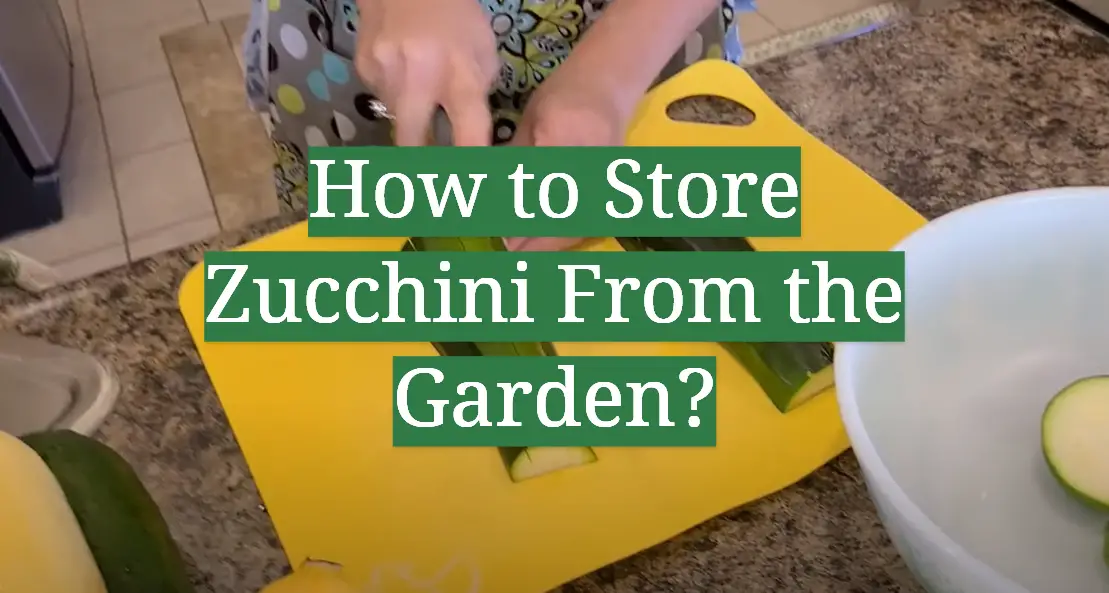




Leave a Reply
View Comments